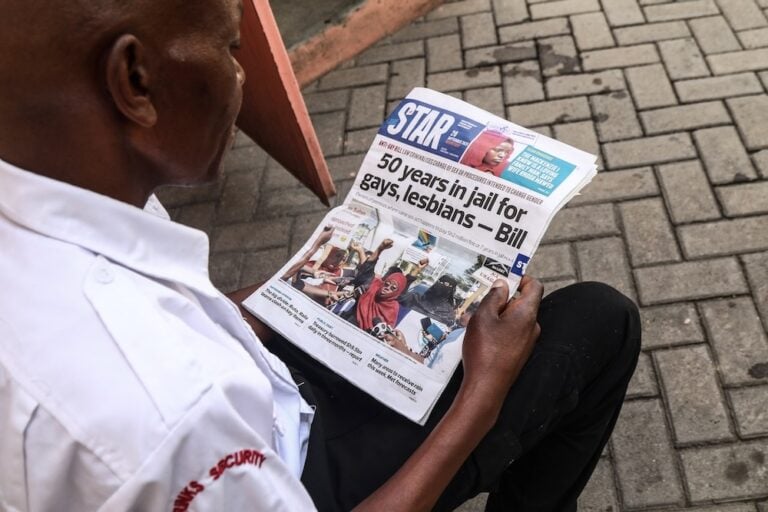(NDIMA/IFEX) – On 8 October 2000, President Daniel arap Moi repeated his threat to ban vernacular radio stations. In doing so, he contradicted his information minister, Musalia Mudavadi, who four days previously ruled out a ban, saying the stations only faced tighter regulations. President Moi said that unless the stations change and “become transparent”, they […]
(NDIMA/IFEX) – On 8 October 2000, President Daniel arap Moi repeated his threat to ban vernacular radio stations. In doing so, he contradicted his information minister, Musalia Mudavadi, who four days previously ruled out a ban, saying the stations only faced tighter regulations. President Moi said that unless the stations change and “become transparent”, they could be banned after all. He singled out the Nairobi-based Kameme FM, which broadcasts mainly in Kikuyu. The president said he was still opposed to the stations because they could be misused to cause anarchy and genocide, as had occurred in Rwanda.
The other vernacular radio stations are Rehema FM, which broadcasts mainly in the Kalenjin language, and Nairobi-based Metro East FM and 88 South Asia FM, both of which broadcast in Hindi and English.
The president urged Kenyans to tune into the state-run Kenya Broadcasting Corporation to promote Kenya’s national culture. “I love Kenyans and I do not want them to end up in civil strife like what happened in Rwanda. I am not against people promoting their culture, but vernacular radio stations like Kameme FM must be transparent first.”
Background Information
On 4 October, Minister for Information and Broadcasting Mudavadi told the parliament that the government had no intention of banning stations broadcasting in the vernacular operations. “The vernacular is part of our culture and there is nothing we can do about them,” he said, adding that the government planned to introduce a bill to regulate the stations.


